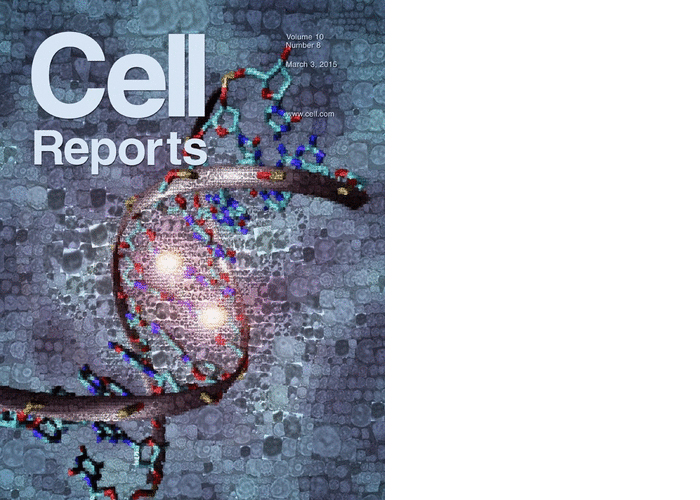
Researchers at CeMM have developed a method for studying DNA methylation in single cells
Dissecting the human epigenome one cell at a time
Every human life starts from a single cell. This cell, the zygote, undergoes many rounds of cell division and epigenome remodeling as it gives rise to the different cell types in the human body. Each organ of our body comprises a handful of cell types that serve specific biological functions. But there is often significant variation between single cells of the same type. Such cell-to-cell differences become particularly relevant in cancer, when a single cell that is by chance resistant to chemotherapy can become the “winner” of massive evolutionary selection in response to therapy, which can…
Read more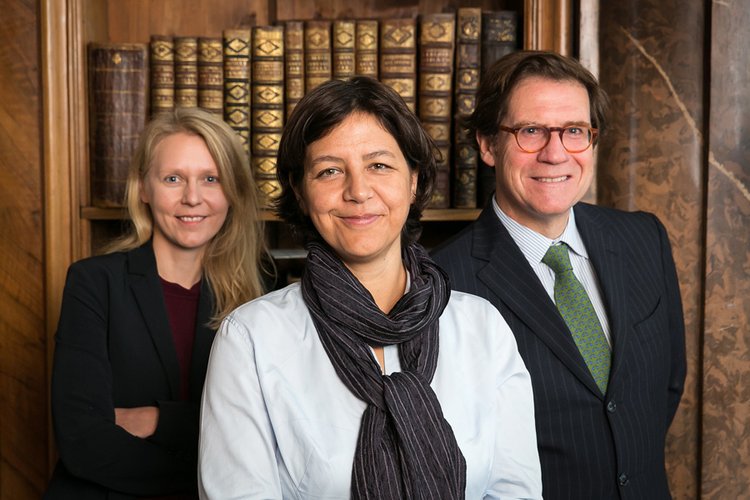
Strengthening the partnership and cooperation between CeMM and the Medical University
Giulio Superti-Furga takes over the professorship for Medical Systems Biology at the Medical University of Vienna. The Scientific Director of CeMM Research Center for Molecular Medicine of the Austrian Academy of Sciences was previously a Visiting Professor of Molecular Pharmacology at the Medical University of Vienna. At the same time Sylvia Knapp, Professor of Infection Biology at the Medical University of Vienna and Principal Investigator at CeMM takes over the newly created position of Director of Medical Affairs at CeMM.
Superti-Furga is a strong proponent of systems biology approaches in medicine and drug research with the aim to…
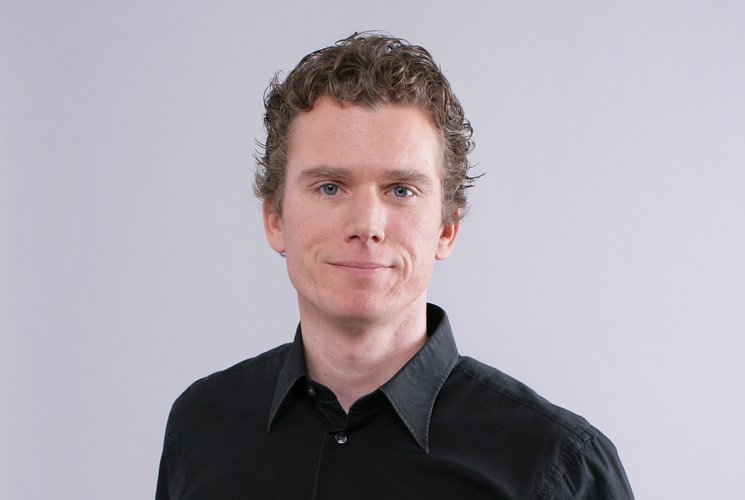
Researchers at the CeMM in Vienna have unearthened an unexpected new target for Triple Negative Breast Cancers
Breast cancer is clinically subdivided into receptor positive or negative tumors, (also known as triple negative breast cancer). Receptor positivity indicates a better prognosis as several specific agents to treat these tumors are available. Such agents, however, have been lacking for receptor negative tumors. To try to identify new agents that would specifically kill triple negative breast cancer cells, a team led by CeMM Principal Investigator Sebastian Nijman conducted a large chemical screen. They used carefully engineered breast cell lines that mimic triple negative breast cancer cells and systematically tested over 20 thousand…
European Research Council grants: Good news for EU-LIFE centres, but with a bitter aftertaste
EU-LIFE European research centres obtained 14 new ERC Starting and Consolidator grants in the latest competitions, which takes the total of ERC-funded grants currently running in centres belonging to the alliance to over 100. As a whole, EU-LIFE partners have a success rate of at least three times higher than the general success rate of ERC Starting and Consolidator grants (over 33% compared to an average of 10%). But this news comes with a bitter aftertaste, as the announced cuts in the Horizon 2020 budget (including ERC) due to the so-called Juncker’s plan may now jeopardise Europe’s competitiveness in future research and innovation.
Read more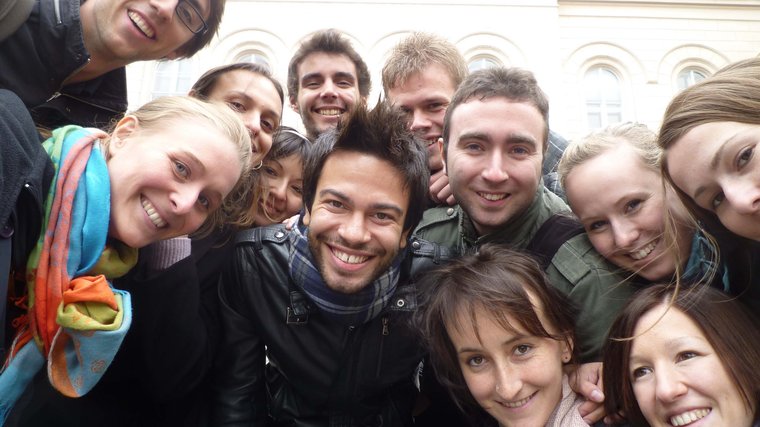
The 2015 CeMM PhD Program - Apply Now!
The 2015 CeMM PhD Program is now open for applications. For our next program starting in October 2015 we are looking for exceptionally motivated PhD candidates with a keen interest in genomics and medicine and an ability and desire to work in a team.
The 2015 CeMM PhD program will focus on two thematic areas: infection and cancer. These thematic areas are built on the pillars of epigenetics, bioinformatics and systems biology, chemical biology and the mechanism of action of drugs, high-throughput genetics, genomics and proteomics, and molecular and cell biology. Future CeMM PhD students will have an opportunity to work at the cutting edge…
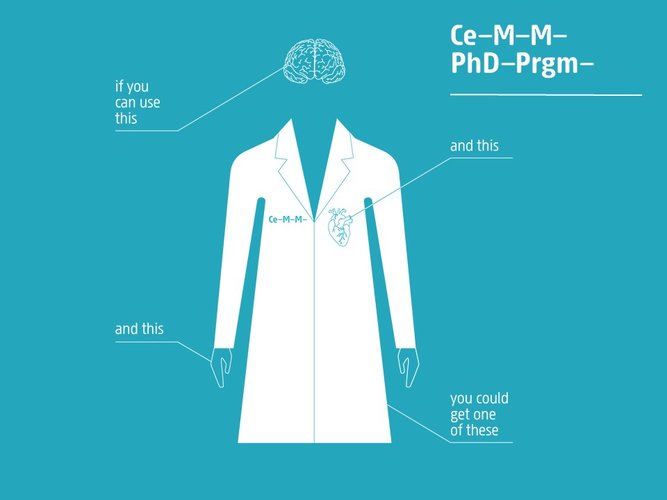
2015 CeMM PhD Program - Apply Now
The 2015 CeMM PhD Program is now open for applications. For our next program starting in October 2015 we are looking for exceptionally motivated PhD candidates with a keen interest in genomics and medicine and an ability and desire to work in a team.
The 2015 CeMM PhD program will focus on two thematic areas: infection and cancer. These thematic areas are built on the pillars of epigenetics, bioinformatics and systems biology, chemical biology and the mechanism of action of drugs, high-throughput genetics, genomics and proteomics, and molecular and cell biology. Future CeMM PhD students will have an opportunity to work at the cutting edge…
Horizon Discovery acquires the CeMM spin out company Haplogen Genomics
Today it was announced that the UK life science company Horizon Discovery Group plc acquired Haplogen Genomics GmbH, a wholly subsidiary of Haplogen GmbH, the first CeMM spinout company. Haplogen’s scientific roots lie in the haploid genetics technology developed by CeMM Adjunct Principal investigator Thijn Brummelkamp while he was a fellow at the Whitehead Institute for Biomedical Research of the M.I.T. This technology greatly enhances the ability to genetically inactivate and modify genes in human cells. Together with CeMM Principal Investigators Sebastian Nijman and Giulio Superti-Furga the company was founded to generate a collection of…

Giulio Superti-Furga´s group discovered a key component of the nutrients sensing machinery of cells
In order to decide whether to grow and proliferate or to break down and recycle, cells need to sense if the required nutrients are available. A central role in this context is played by the mechanistic target of rapamycin (mTOR) pathway that integrates the presence of growth factors, energy levels, glucose and amino acids to modulate cellular responses, such as protein and lipid synthesis. Past studies have demonstrated that the presence of amino acids is a crucial factor for mTOR activation. Despite this, the precise mechanisms by which amino acid levels are sensed are still poorly understood. In collaboration with Keiryn Bennetts group at…
Read more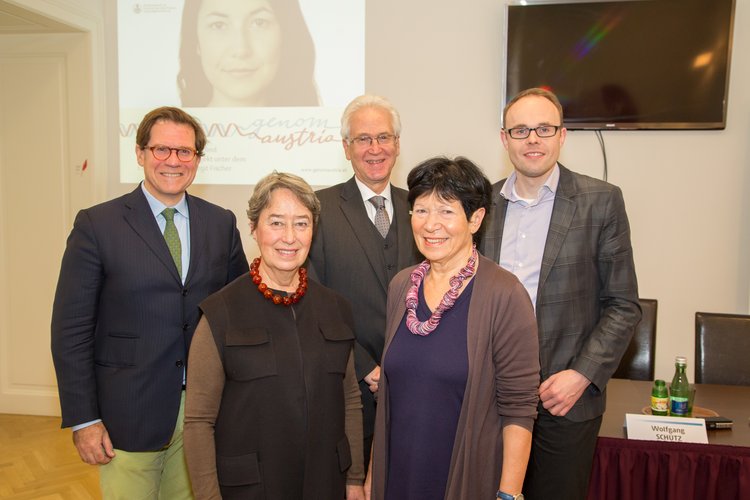
Launch of Genom Austria
In a press conference on November 25th, 'Genom Austria' was announced as a joint Citizen Science Project of CeMM, the Medical University of Vienna, and the PersonalGenomes.org foundation. Genom Austria will explore the scientific, educational, philosophical, ethical, and social implications of personal genome sequencing. Following the model of Harvard’s Personal Genome Project, Genom Austria provides qualifying volunteers the opportunity to sequence their personal genomes and to share the data with the public. An important aim is to start a public debate on the opportunities and risks associated with whole genome information and contribute to…
Read more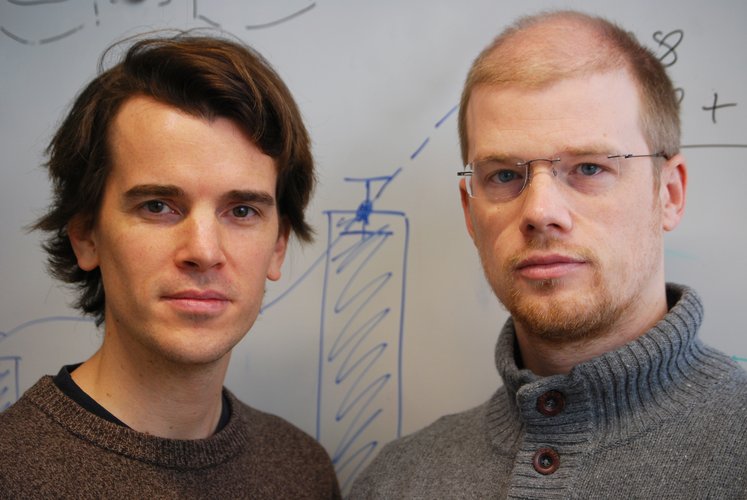
How influenza virus causes bacterial superinfection
Viruses can predispose the host to bacterial superinfection, and secondary pneumonia is considered to play a major role in the morbidity of seasonal as well as pandemic influenza. Despite the significant clinical and socioeconomic impact, the molecular mechanisms of how influenza virus causes superinfection have been poorly understood. Scientists from Andreas Bergthaler´s Group at CeMM now succeeded in finding a new molecular mechanism, which may explain why influenza virus infections increase the susceptibility to bacterial pneumonia. Their discovery of a novel crosstalk between the antiviral molecule interferon and the enzyme Setdb2, which…
